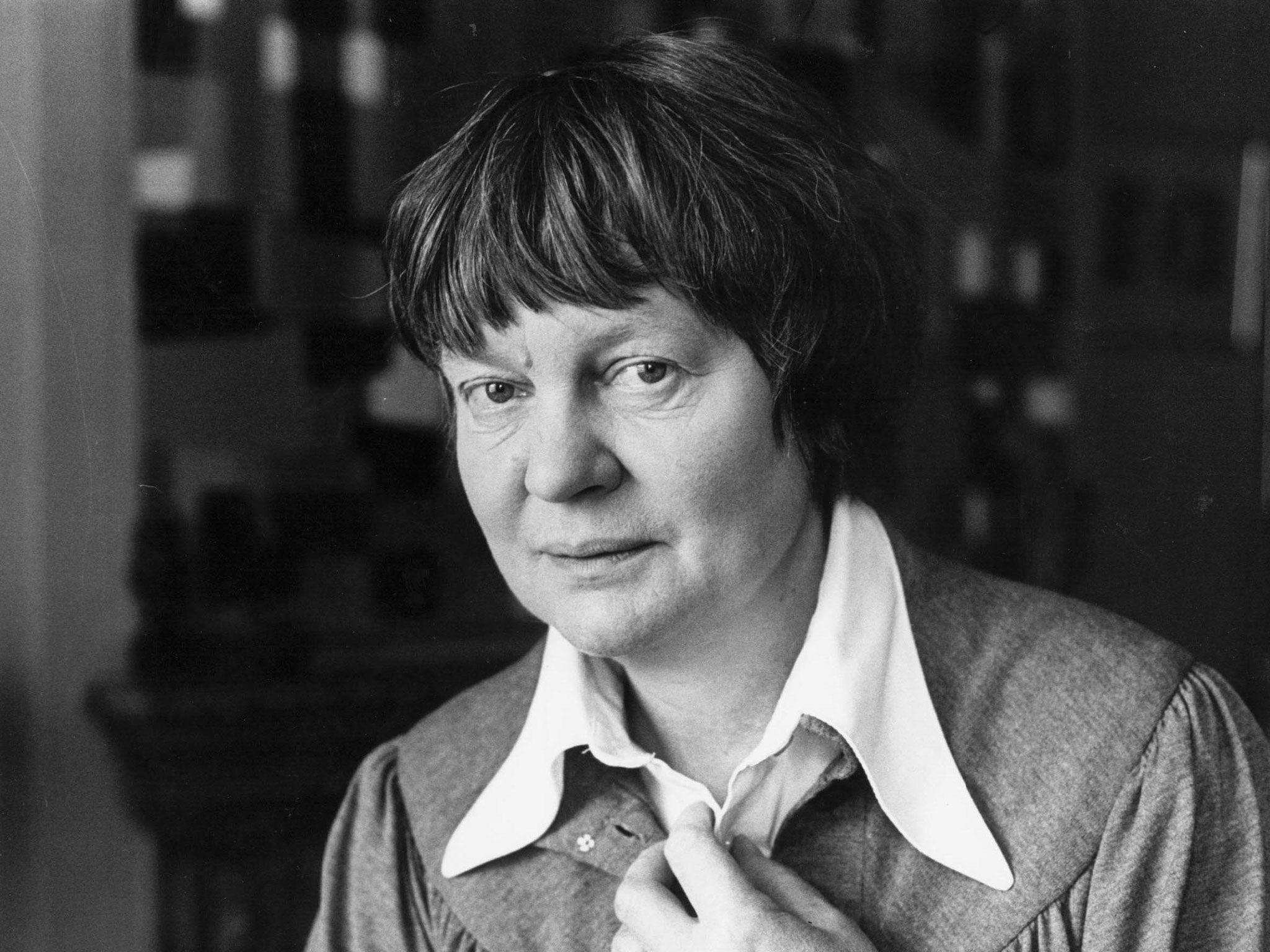Living on Paper: Letters from Iris Murdoch 1934-1995 edited by Avril Horner and Anne Rowe, book review
A collection of letters from Iris Murdoch offers little insight into the author's work

The intentions behind the publication of a writer's letters might be many and various, but there is one consequence of this book. Now, finally, when we think of Iris Murdoch, we may no longer see Judi Dench. It was Dench who played the elderly Murdoch in Richard Eyre's 2001 film Iris, based on John Bayley's 1998 memoir of his wife, published when she was suffering but not yet dead from Alzheimer's. The book and film boosted Murdoch's recognition factor, but did they really help her reputation as a novelist – a maker of fates, rather than the tragic subject of her own?
I have not seen Eyre's film, nor read Bayley's three memoirs (disparaged by many of both writers' friends), so my idea of Murdoch has largely come through my reading of her novels, in all their astonishing, witty, occasionally plodding variety. In A Severed Head and The Italian Girl, she psychoanalysed the British character under the influence of the permissive society, while her Booker-winning The Sea, The Sea, from 1978, was 10 times weirder and at least twice as good as John Banville's 2005 winner The Sea.
“I am an indefatigable letter writer,” Murdoch wrote to the philosopher Philippa Foot, in May 1968. “I have in fact only once corresponded with anyone (now departed from my life) who was as good at writing letters as I am.” Well, I beg to differ. Indefatigable is not at issue, with these 760 or so letters coming largely from more than 3,000 held at Kingston University (there are perhaps as many again elsewhere). She wrote to her close friend, the novelist Brigid Brophy, “most days” for a number of years – and in fact more than a thousand of those Kingston letters are to Brophy.
Indefatigable, yes. But good? Murdoch was not writing for posterity; she was writing for her friends, or rather as a way of maintaining her friendships, whether intellectual, passionate or both, and there's nothing wrong with that. The qualities we associate with the “best” letters (in the sense of published ones) – performance, personal insight, historical detail – are largely absent. If you turn to the index and pick out your favourite Murdoch novels, you'll find most of the entries point you to footnotes, or the excellent biographical summaries with which the editors, Avril Horner and Anne Rowe, preface each chapter. Where you do land on a letter, Murdoch is far more likely to be thanking her correspondent for their opinion on the book – and usually politely dismissing it – than offering her own. (Murdoch burnt Brophy's letters, and to judge by Murdoch's response to them, they would have made for more entertaining reading.)
There are flashes of humour, as when Murdoch takes to signing herself in her letters to Brophy “AJR”, in homage to the Raffles novels they delighted in reading and discussing, relishing their homoerotic undertones, and doubtless there is a frisson in the discussions of incest and sado-masochism, but this was all there already in the books.
What you do get is a real sense of the promiscuity of Murdoch's intellectual affairs – with, for example, Brophy, Foot, Raymond Queneau, Elias Canetti. In a letter to the logician Georg Kreisel, Murdoch writes: “I can't divide friendship from love, or love from sex,” but the self-analysis doesn't go much deeper than that.
At best, the letters reinforce Murdoch's qualities as a person, but then it was never as a person that she was most interesting. She was most interesting as a writer, and I can't imagine these letters sending anyone off to the novels who wasn't already heading that way.
Chatto & Windus, £25. Order at £22 inc. p&p from The Independent Bookshop
Join our commenting forum
Join thought-provoking conversations, follow other Independent readers and see their replies
Comments
Bookmark popover
Removed from bookmarks